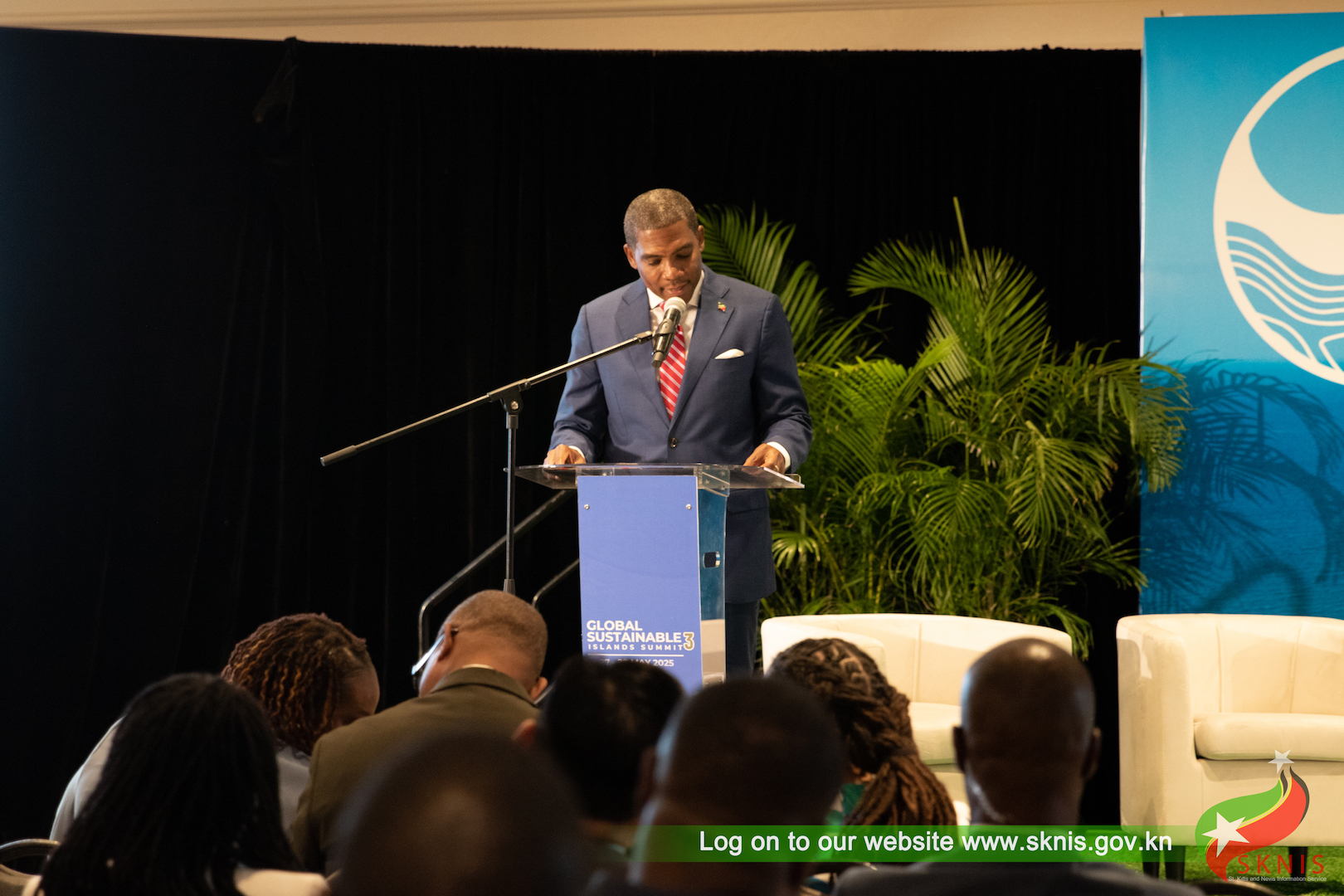Prime Minister Drew Issues Bold Call to Action at GSIS ’25: Leading the Charge for Solutions
The 2025 Global Sustainable Island Summit (GSIS), held in Basseterre, St. Kitts and Nevis, marked a pivotal moment for Small Island Developing States (SIDS) in their collective fight against climate change. Prime Minister Dr. Terrance Drew, in his opening address, passionately declared that SIDS are not merely passive victims of the climate crisis but active innovators and pioneers of sustainable solutions for the entire planet. This declaration set the tone for the summit, framing island nations not as isolated entities but as a unified force capable of driving global change. The summit, hosted for the first time in the Caribbean, served as a platform for hundreds of delegates from around the world to engage in critical discussions and forge partnerships aimed at shaping a more sustainable future for islands and the world.
The Prime Minister’s address emphasized the urgency of the climate crisis and the disproportionate impact it has on island nations. While acknowledging the challenges faced by SIDS, he highlighted their resilience and determination to chart a new course. He underscored the importance of the summit as a forum for collaboration and the development of tangible solutions. The choice of St. Kitts and Nevis as the host nation reflected the country’s commitment to its own Sustainable Island State Agenda (SISA), a comprehensive framework that integrates sustainability into all aspects of national life, from infrastructure development to education. SISA serves as a model for other island nations looking to implement holistic approaches to sustainable development.
The Prime Minister’s address resonated with the core message that islands, though geographically dispersed, are interconnected by their shared vulnerabilities and their collective potential to address climate change. He positioned islands not as peripheral actors but as the frontline of both the climate crisis and the solutions. This perspective challenged the traditional narrative of SIDS as passive recipients of aid and instead cast them as active agents of change, capable of driving innovation and inspiring global action. He called for a new form of multilateralism, built on empathy, scientific understanding, and practical solidarity, emphasizing the need for collaborative efforts to address the climate crisis effectively.
The summit’s agenda reflected the diverse challenges and opportunities facing island nations. Key themes included renewable energy transition, securing climate finance, preserving ocean health, ensuring food and water security, and promoting sustainable urban development. These topics highlighted the multifaceted nature of sustainability and the need for integrated solutions that address the interconnectedness of environmental, economic, and social systems. The summit provided a space for experts, policymakers, and community leaders to share best practices, explore innovative technologies, and develop collaborative strategies to address these critical issues.
The Prime Minister’s concluding remarks painted a powerful image of global island solidarity. He used the metaphor of the ocean, which both separates and connects islands, to emphasize the shared destiny of these nations. He called for unity and collective action, urging participants to leave the summit not just with good intentions but with concrete projects, partnerships, and policies. This call to action underscored the summit’s focus on tangible outcomes and its commitment to translating dialogue into action.
The 2025 GSIS in St. Kitts and Nevis served as a powerful testament to the growing leadership of SIDS in the global fight against climate change. The summit provided a platform for island nations to showcase their innovative solutions, share best practices, and forge partnerships to accelerate their transition to sustainable and resilient futures. The Prime Minister’s compelling message of unity, resilience, and innovation set the stage for a week of productive discussions, collaborative initiatives, and tangible outcomes, contributing significantly to the global movement for sustainability. The summit underscored the vital role of SIDS in shaping a more sustainable future for all, demonstrating their capacity to not only adapt to climate change but also to lead the way in developing innovative solutions.
Share this content:












Post Comment